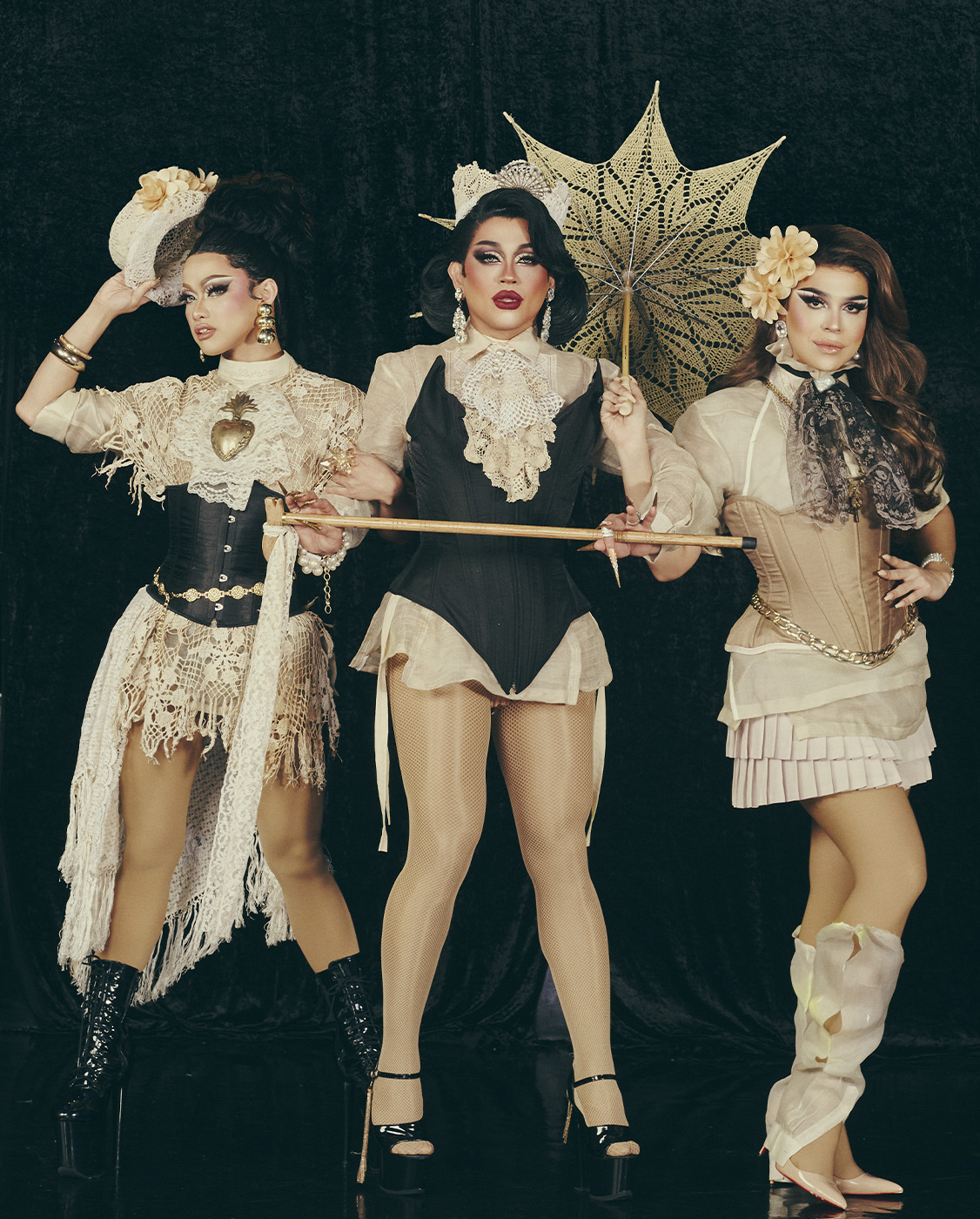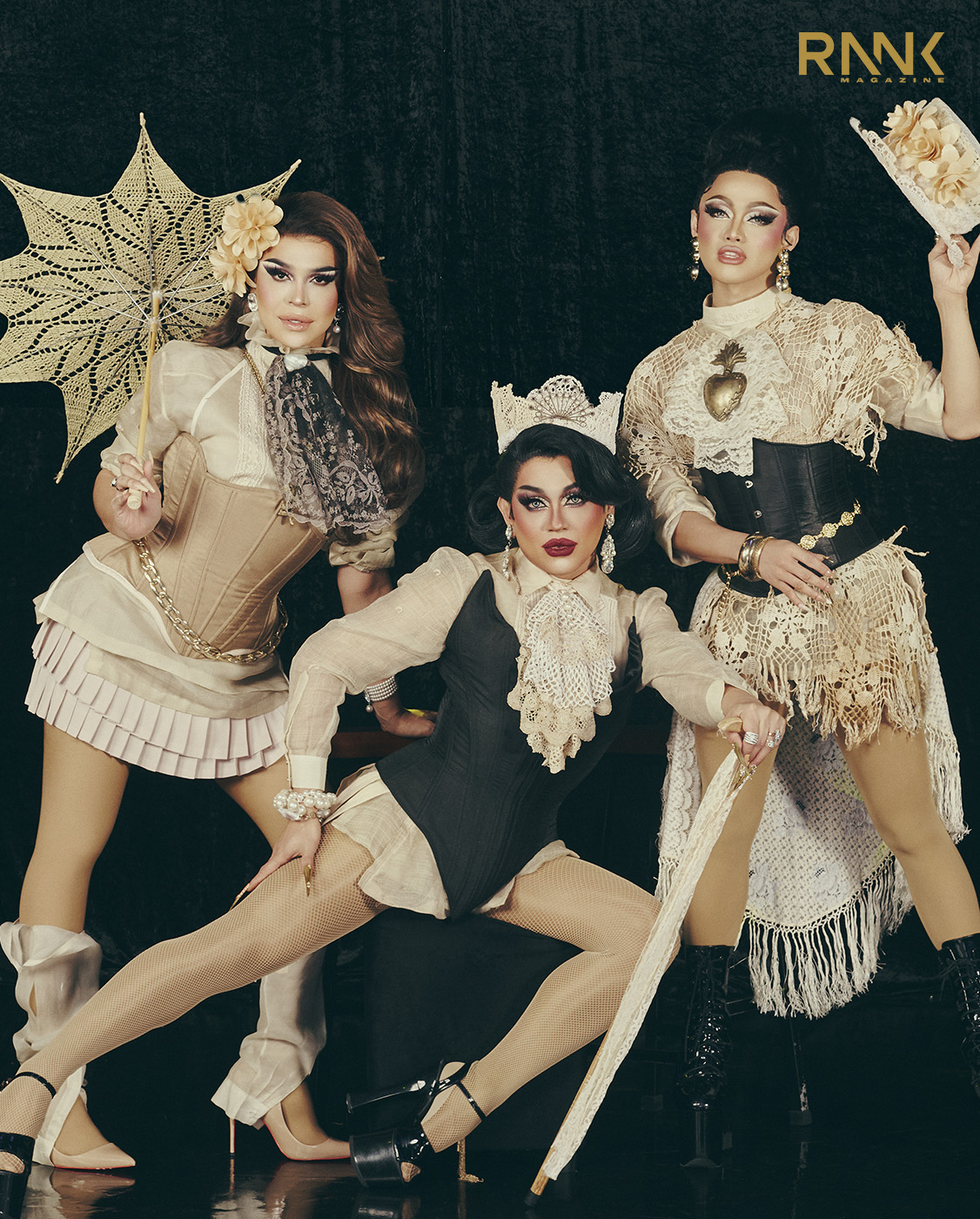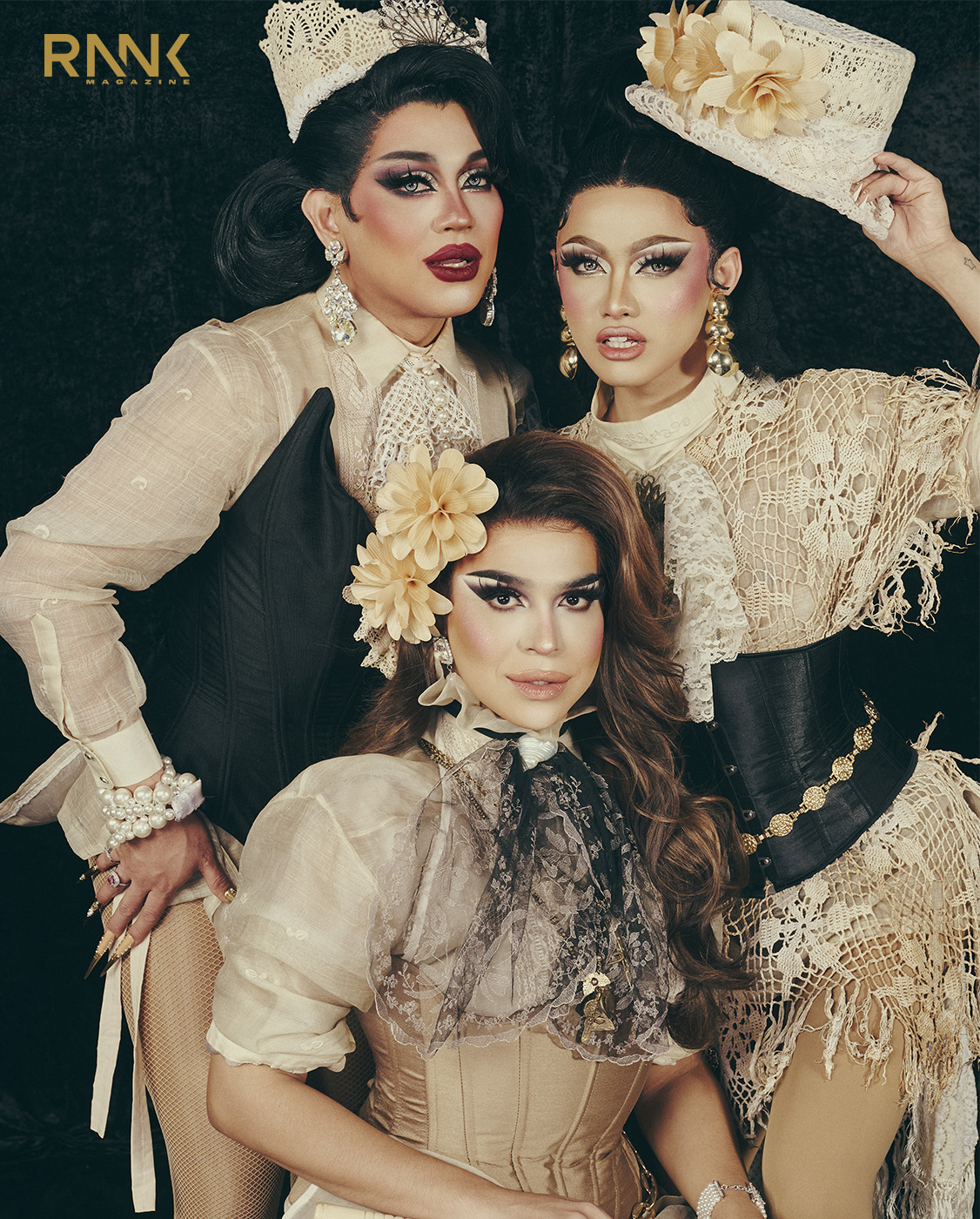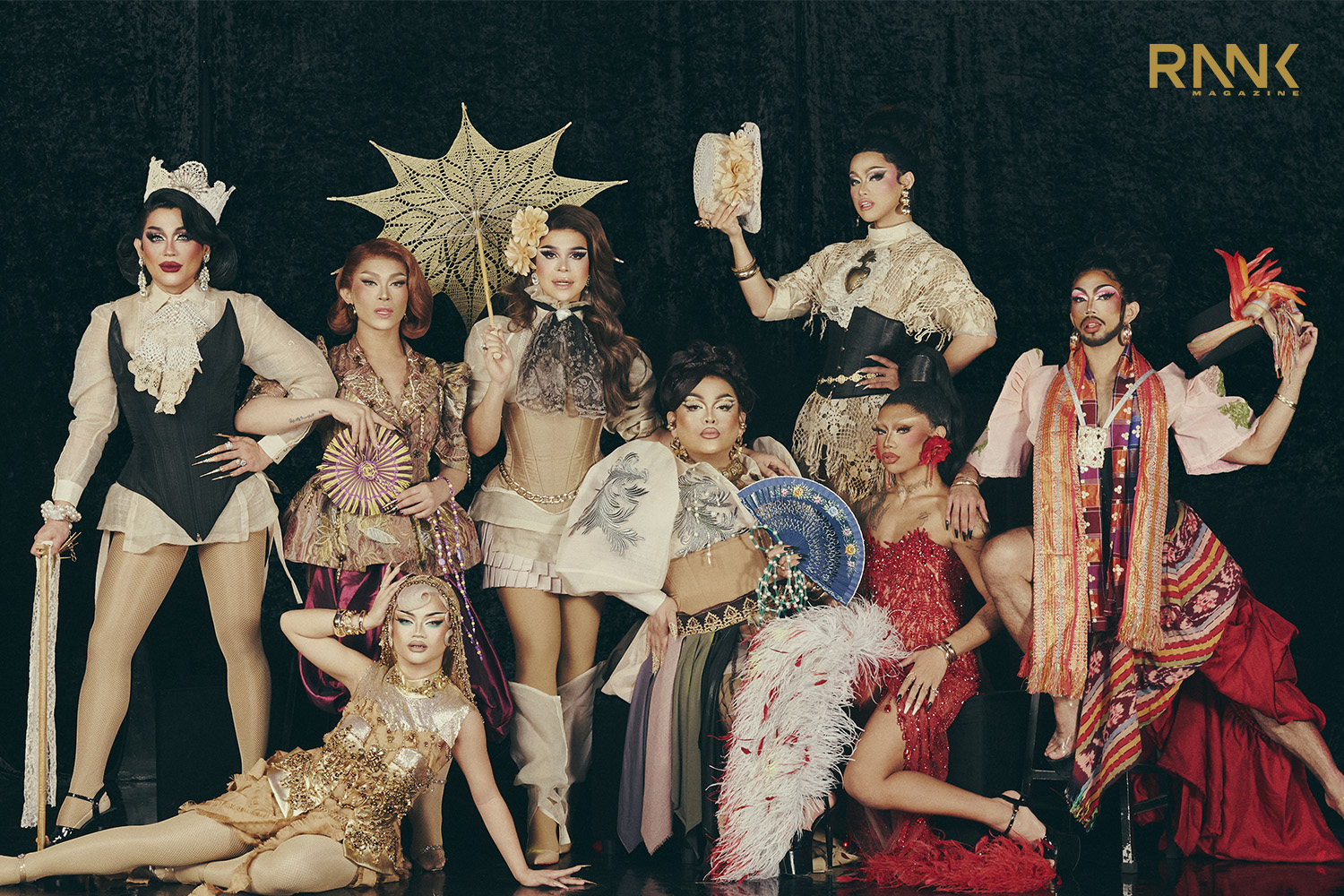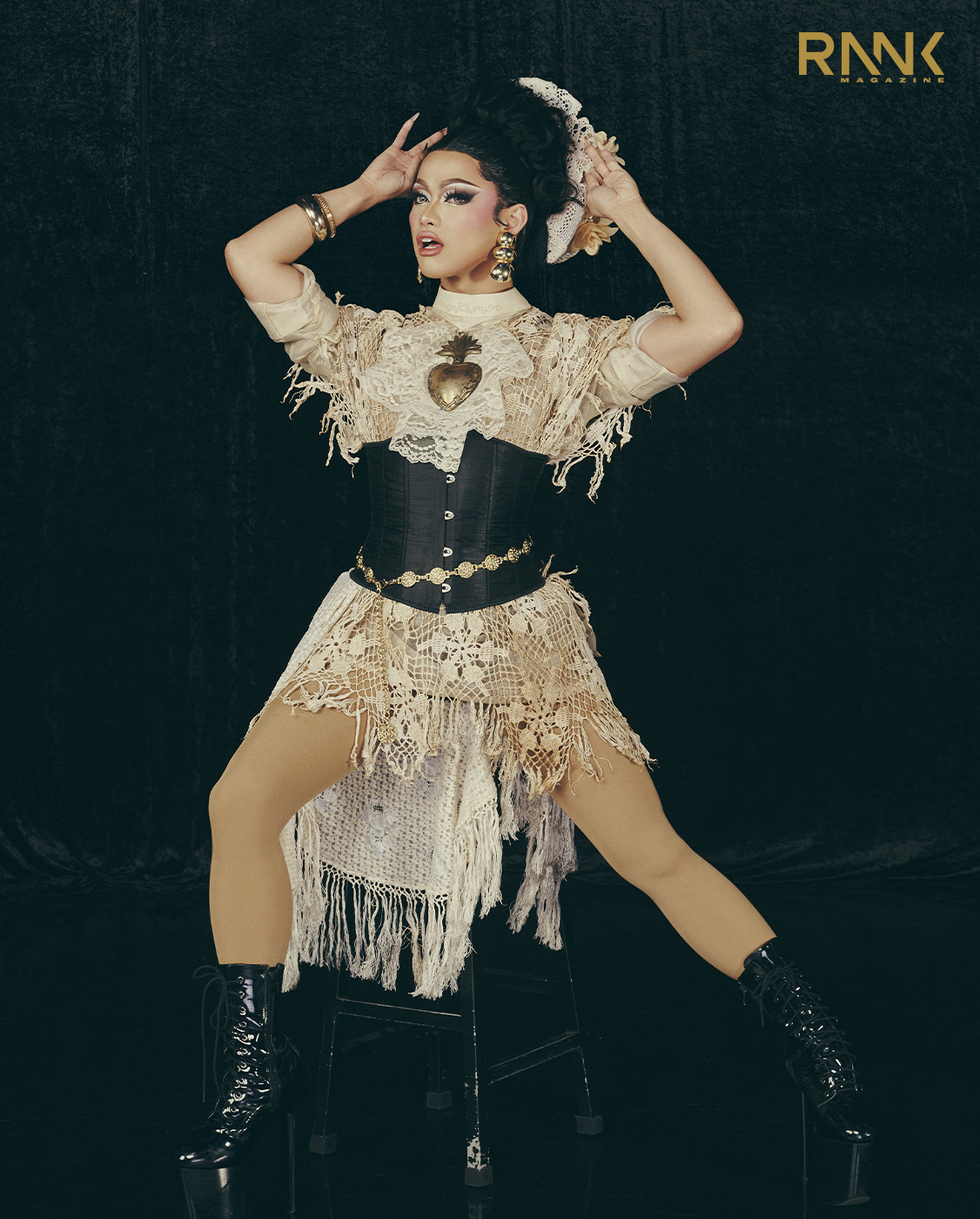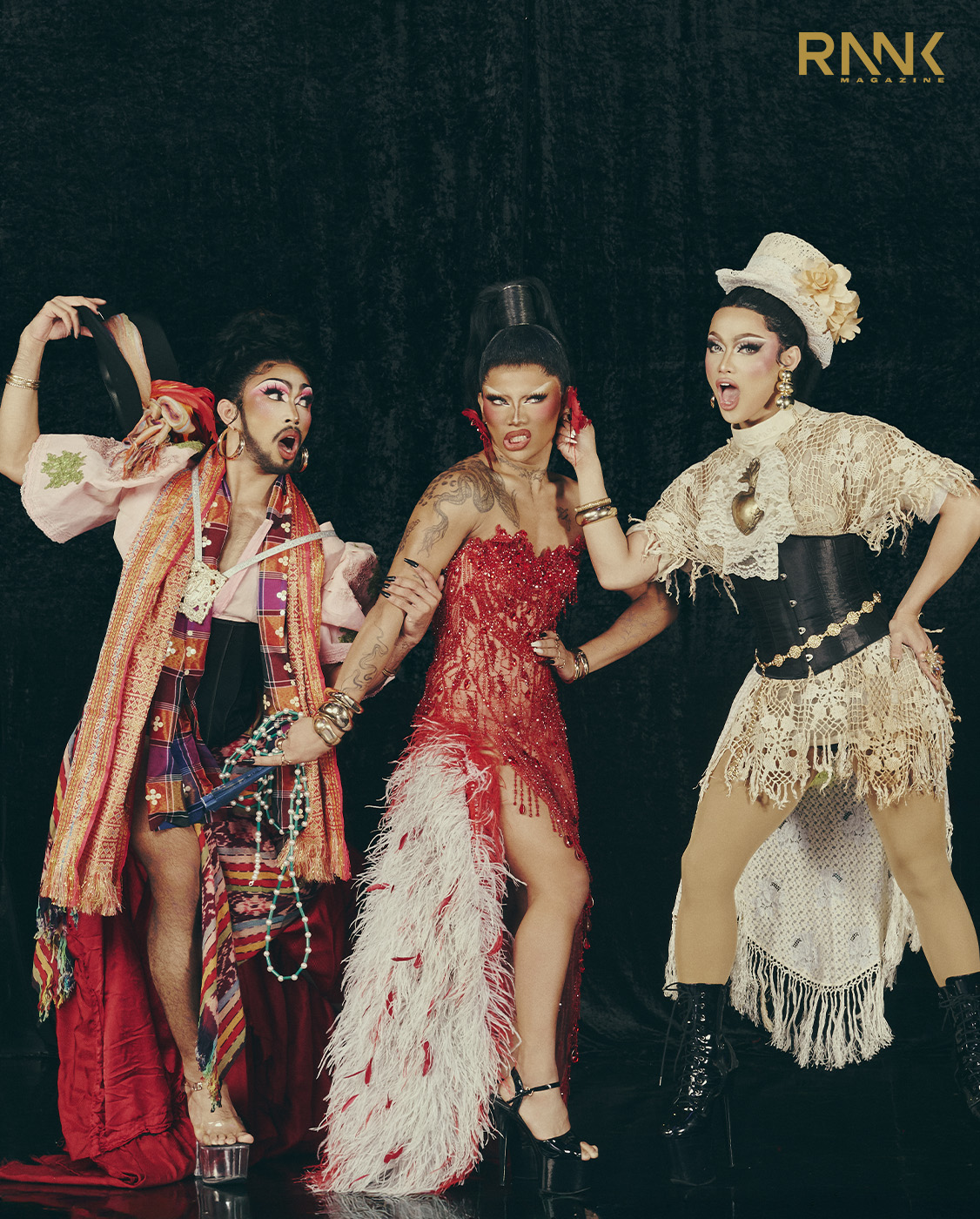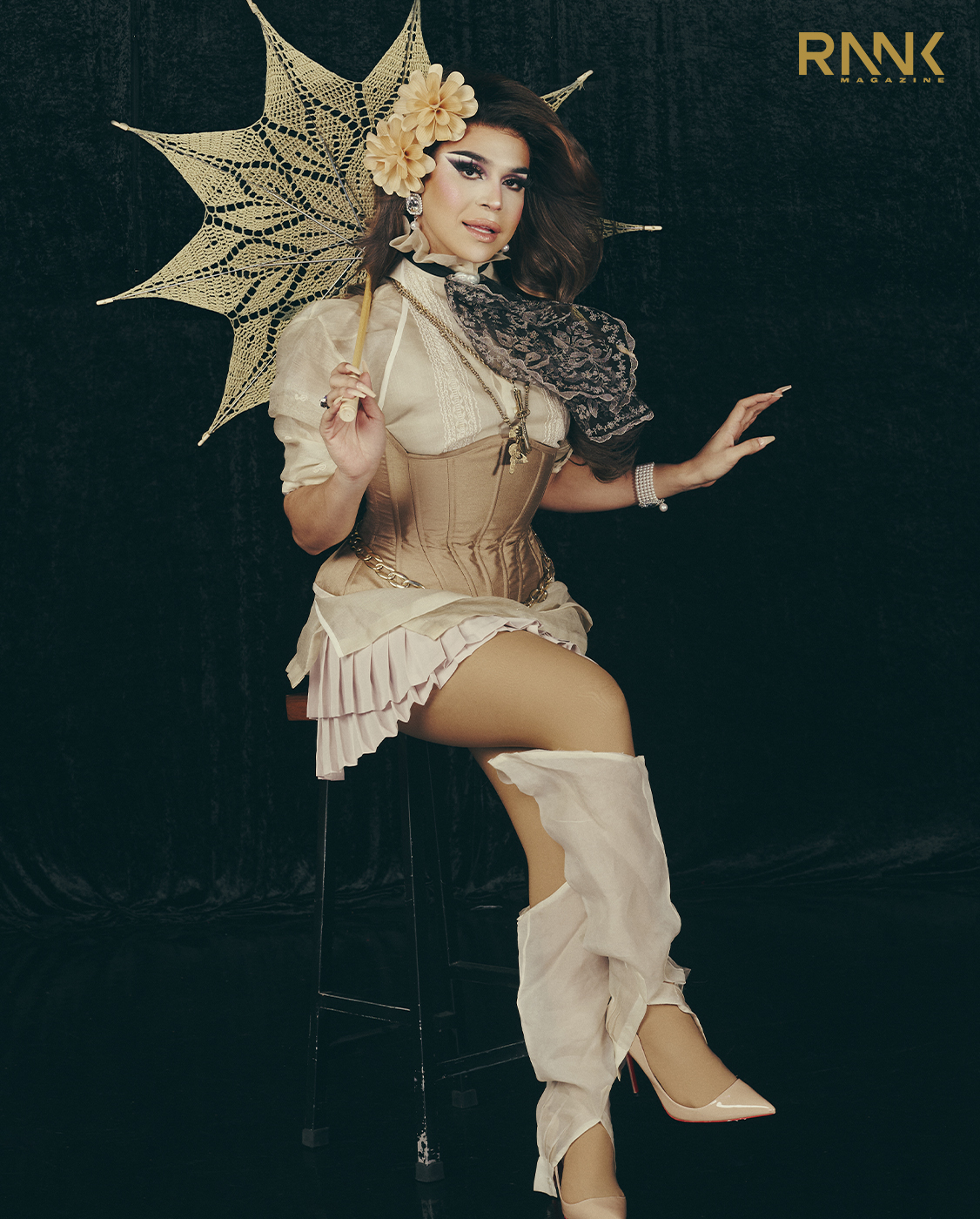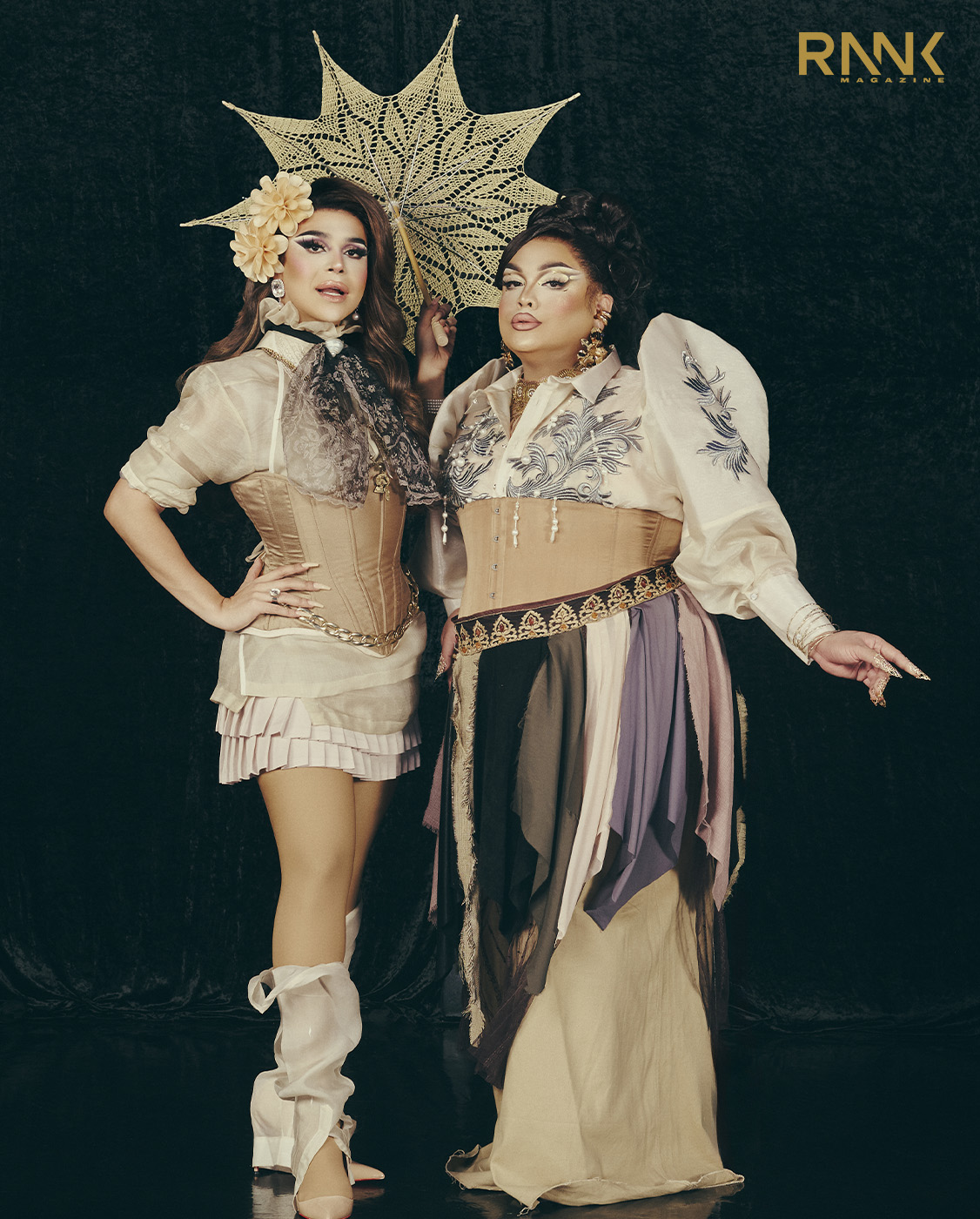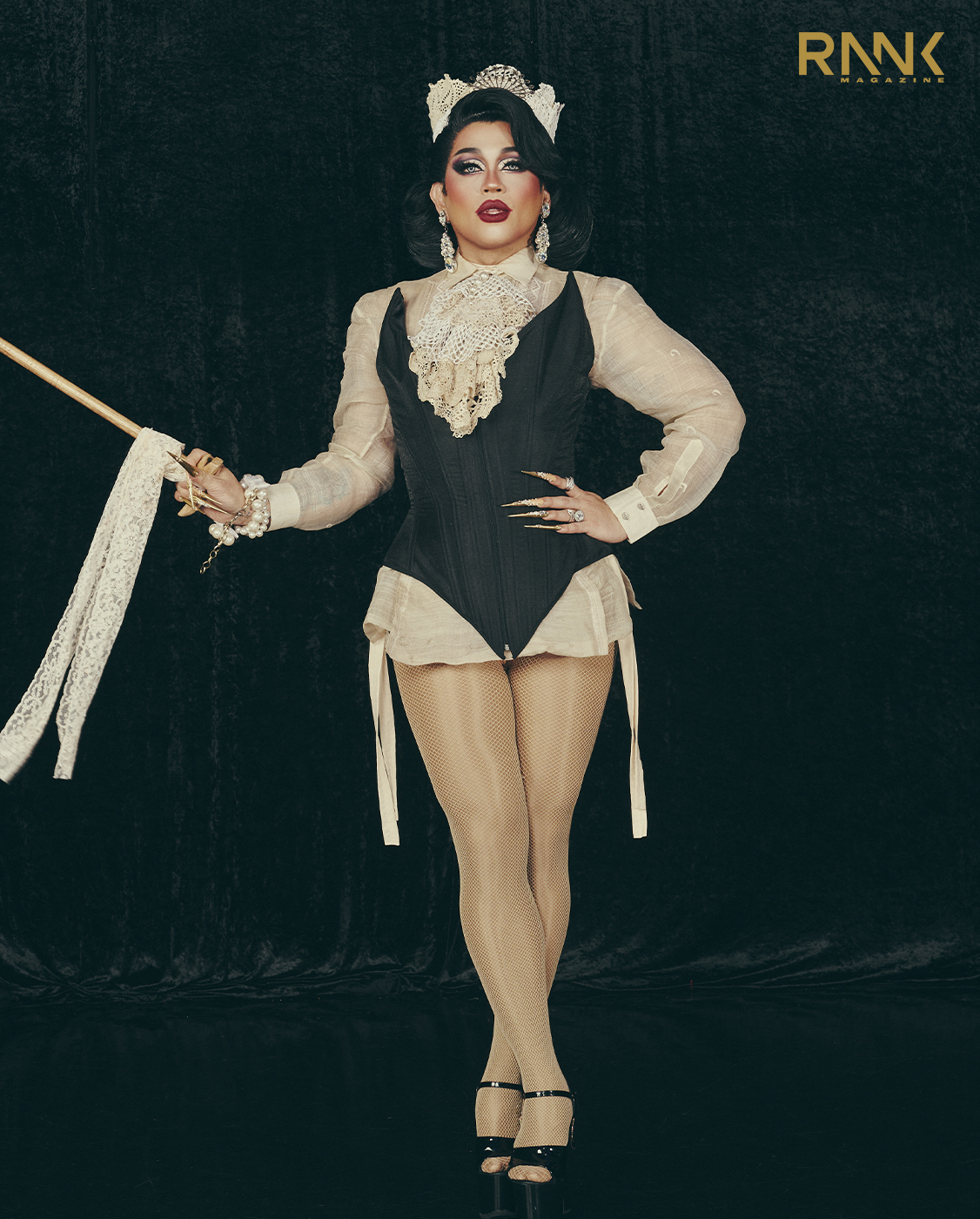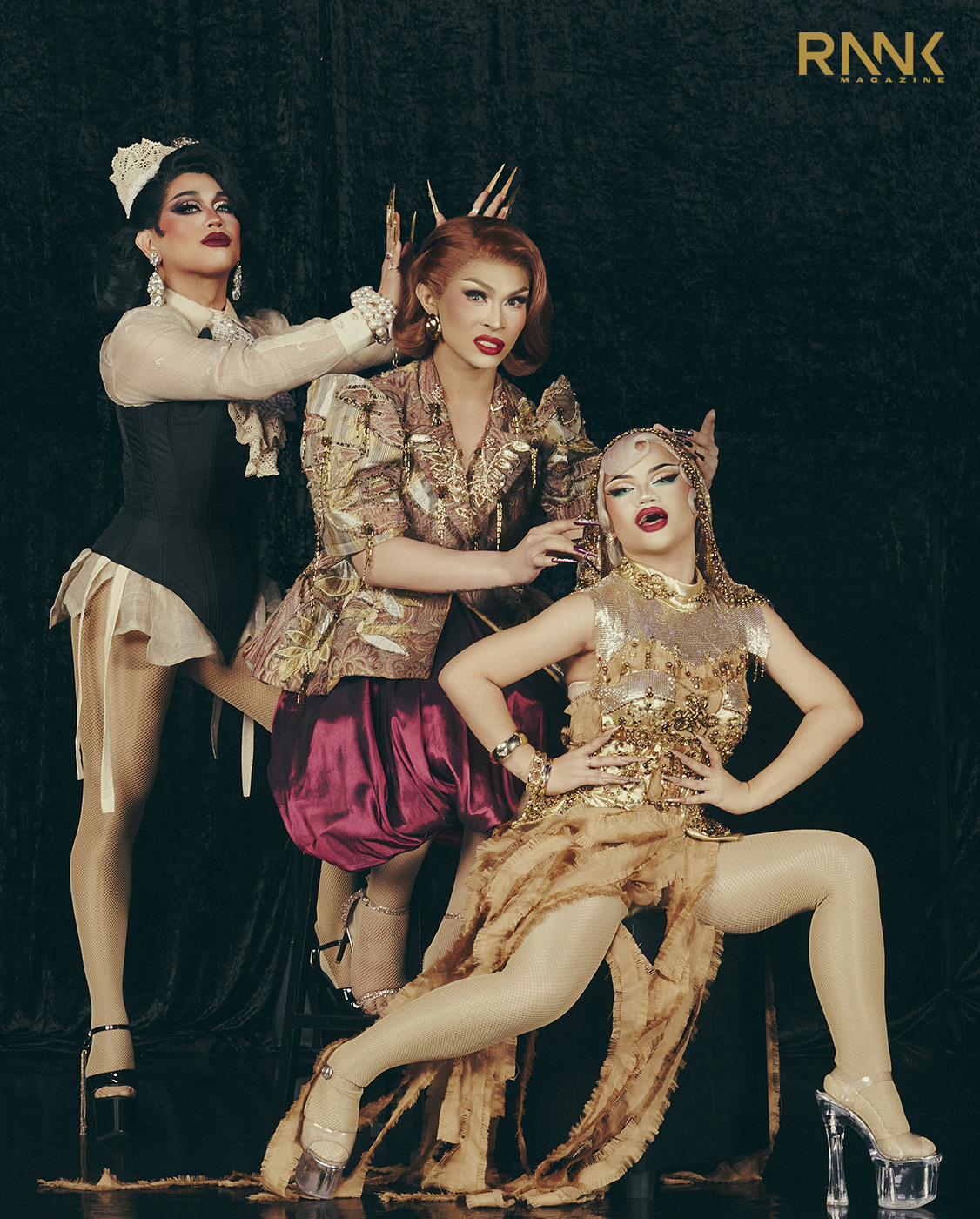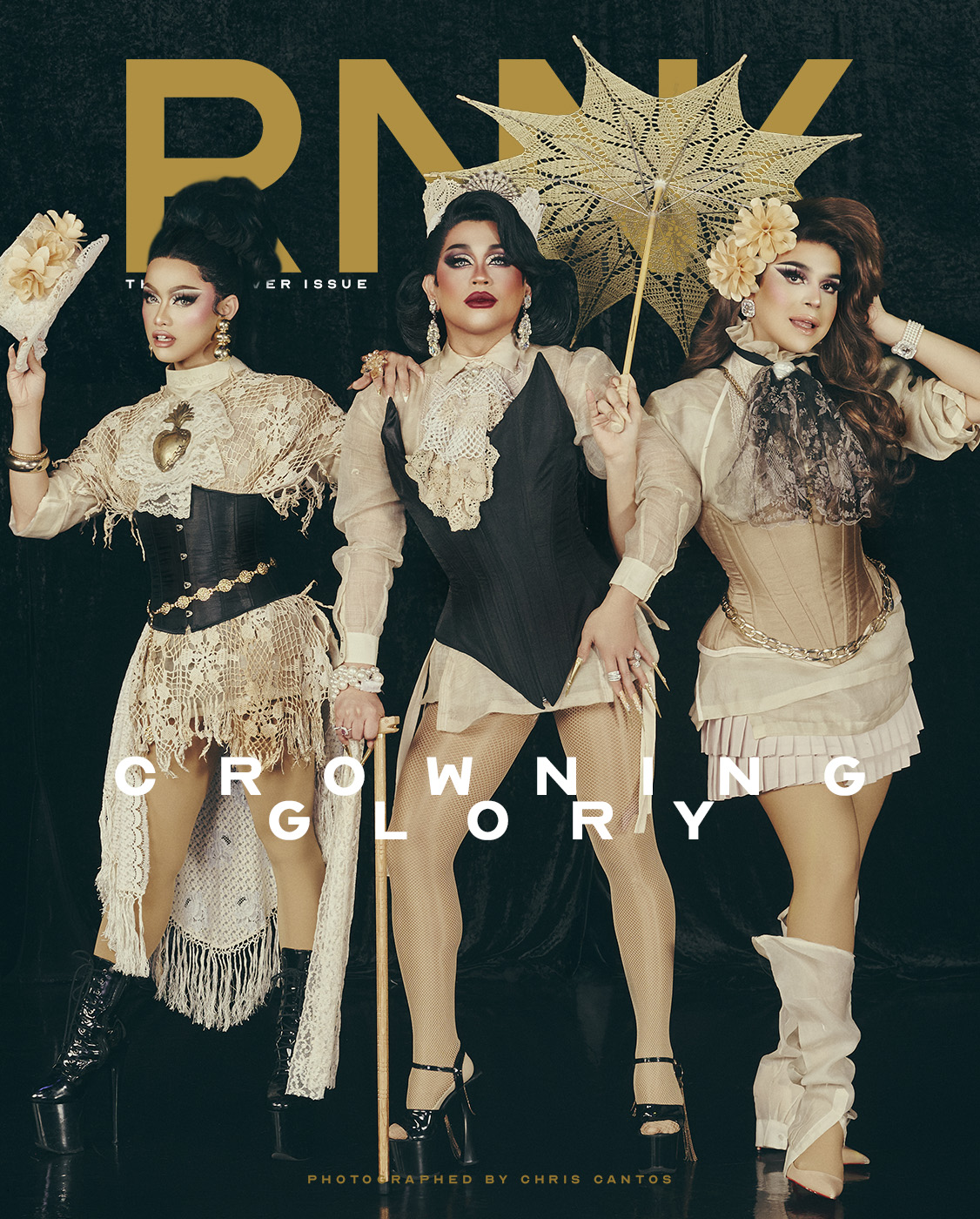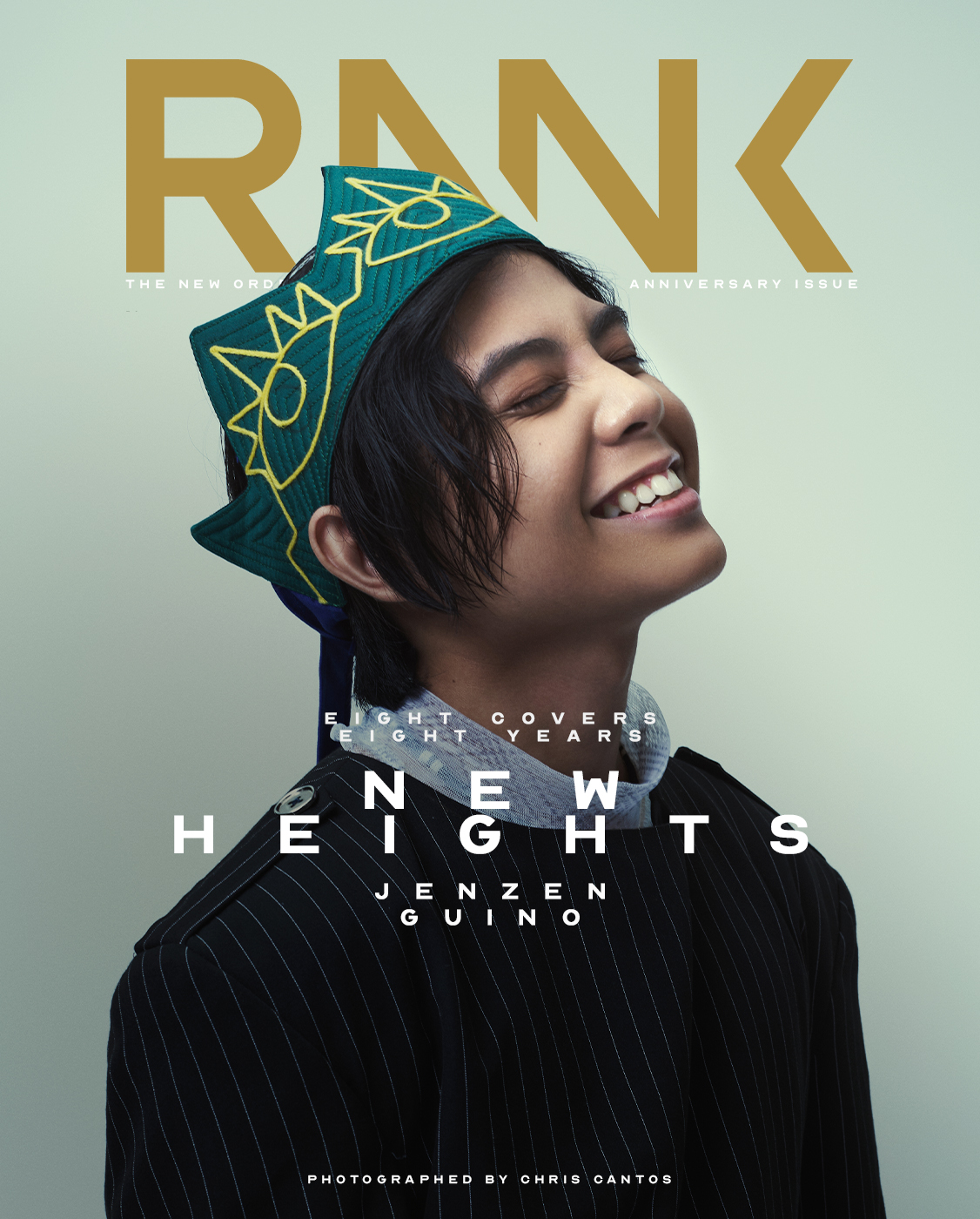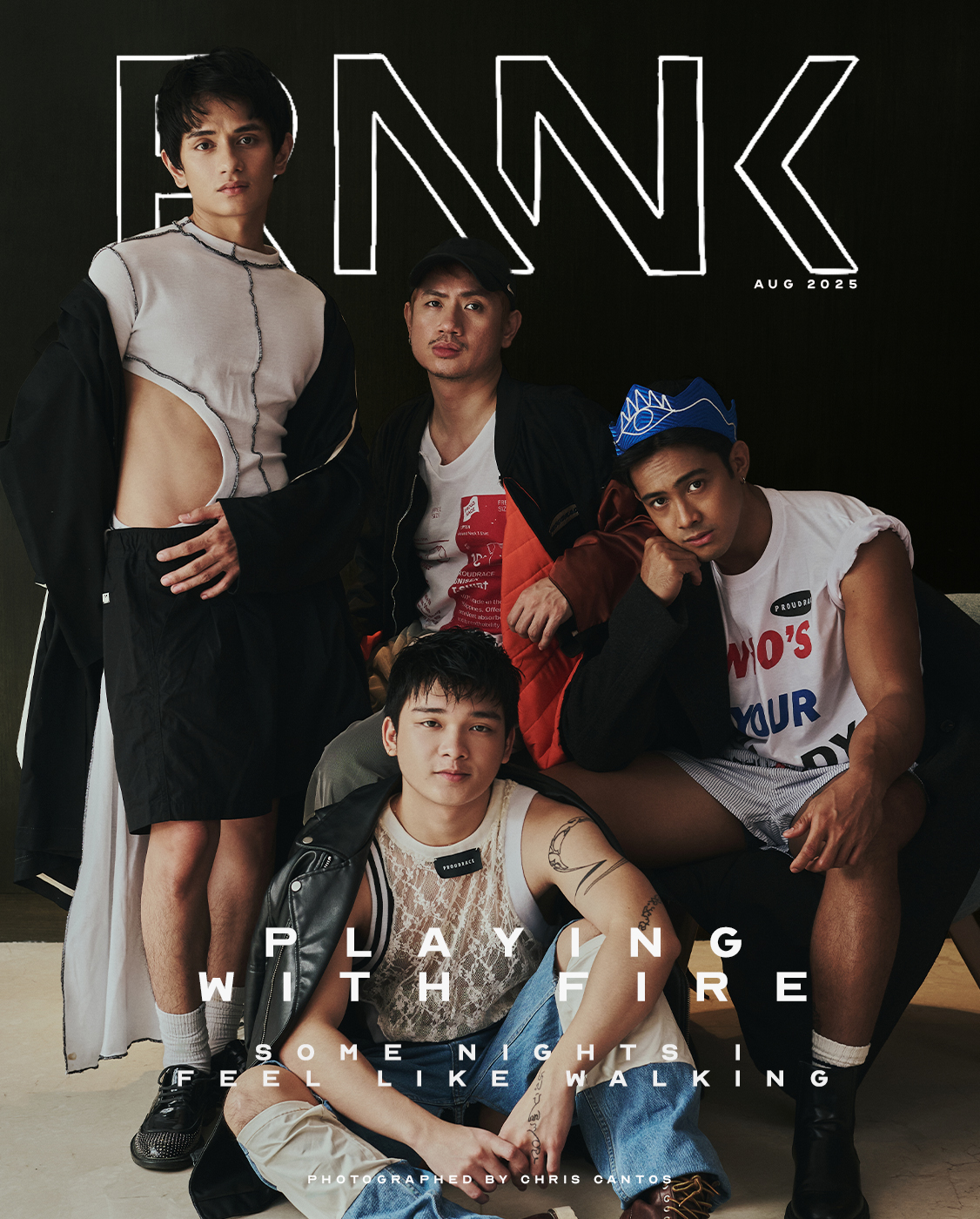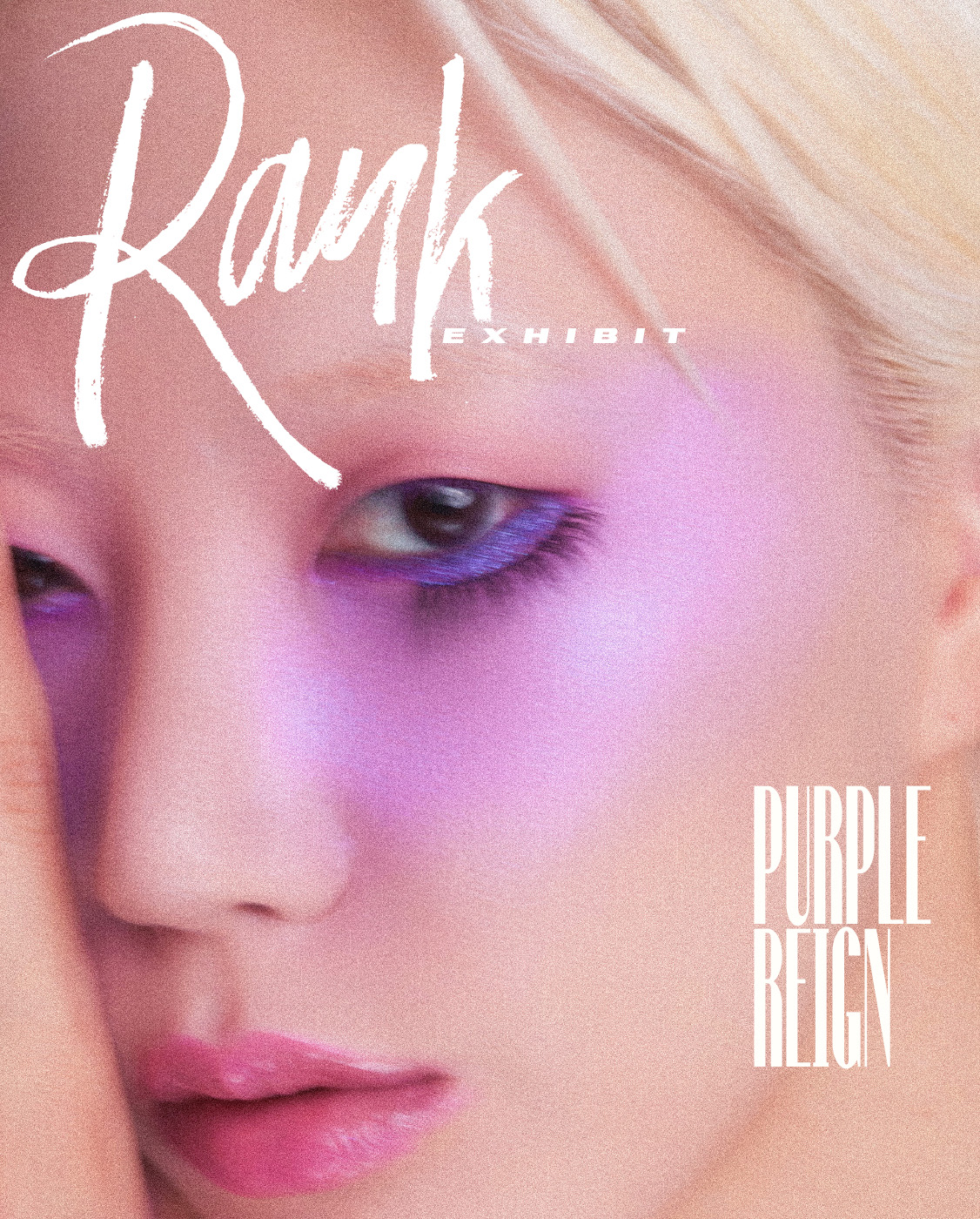To the world of entertainment, Precious Paula Nicole, Viñas Deluxe, and Brigiding are some of the most recognizable and influential Filipino drag queens to ever grace the stage and penetrate mainstream consciousness. But beyond the spotlight, the screaming fans, and the rising net worth, even, their existence, in and out of drag, continues to ring louder than lip-synchs and applause.
It is a declaration. It is defiance.
And now, it is a legacy.
At the heart of that legacy stands Rampa, a bar, but more so a home, a stage, and a safe space for the next wave of Filipino drag. Here, the Divine Divas are no longer just headliners. They are builders. Mothers.
In the aftermath of Drag Race Philippines, as the applause rang louder and the spotlights burned brighter, the three beloved drag artists, known collectively as the Divine Divas, could have easily focused on their own ascent. The opportunities continued to come: bookings, brand deals, press, record deals, and primetime. But instead of running solo toward the crown, they chose to stay rooted. To build. To mother. And from that intention came Rampa—not just a bar or a stage, but a movement disguised as nightlife.
Before it was anything, Rampa was a dream born in lockdown. Brigiding, now the mother of a burgeoning drag family, House of Ding, remembers the moment well, tracing it back to when she reintroduced herself to the world. She had just let go of her old name, Gigi, choosing instead the name that had always felt most like her—Brigiding.
She planned an online concert for her birthday and this shift was a well-documented success. At the time, Rank Magazine joined the then-drag bar favorite in covering an introduction to what would be her thrust to mainstream entertainment. That shoot, done at the height of the pandemic, became more than content. It was a soft launch of what was coming. What started as livestreams from a Makati condo slowly turned into a shared joke among sisters: what if we had our own space? A bar. A home. A sanctuary.
And then came Drag Race. Suddenly, that dream gained a spotlight and the means to be made real. They asked each other: “Ready na ba tayo? Ready na ba tayo to open our own place? To be responsible not just for ourselves, but for others?”
Chosen family has long been a lifeline in queer spaces. But in the world of drag, it’s also a lineage for passing of stories, techniques, and survival tactics. And unlike the queens of generations past, today’s baby drag artists aren’t building alone.
“Na-feel ko na ready na ako maging drag mother after Drag Race,” Brigiding shares. “Like okay, I’ve been having so much glory, so much pride, so much exposure and platform parang mas masarap ‘to i-experience now kapag sine-share mo na siya sa iba. So, mafi-feel mo siya eh, that you are ready to share what you’re having.”
“Nung una, siyempre gusto mo—I mean, we’re drag queens, we are full of ourselves, ‘di ba? We want all the praises papunta sa atin, we want all the moments, we want all the follows, we want all the likes to be towards us. Pero mafi-feel mo na may ibang satisfaction, may ibang beauty, may ibang kilig kapag you’re having something, but the others are also having their share of [that same] appreciation and attention. I think that’s an indicator that you’re ready… when you’re ready to share it.”
Viñas DeLuxe, more popularly known as the Misis of the three (and of the drag industry), and now the mother of the House of DeLuxe, talks about the value and power of chosen families in the queer setting, long before the concept was given a name by the powers that be on mainstream television.
“Actually, yung drag family, the concept, naman ay parang na-solidify lang siya dahil sa Drag Race, pero matagal na rin natin siyang pina-practice, ’di ba? ’Yung mga… meron tayong mga nanay-nanayan sa school, meron tayong mga momshie, meron tayong ganyan. Pero para sa lahat ’yun, lahat ng bakla. Pero nung nagka-Drag Race, ‘Ah okay, ito yung pamilya ko. Ito yung solid. Dito namin isi-share yung lahat-lahat. Ito yung safe space ko.’ Pero parang kahit hindi pa uso yung mga ‘houses’ na term sa Pilipinas, parang noon pa naman tayong naghahanap ng sarili nating pamilya outside our, alam niyo ’yun, biological family.”
She adds, “Karamihan din sa mga bakla, ’di ba, na hindi nila nafi-feel yung love sa mga bahay nila, naghahanap sila ng love outside their homes. And ’di ba minsan, tayo-tayo rin yung nagkikita?
Viñas echoes this, remembering how her daughters, like Tiny DeLuxe, were simply looking for a safe space during the pandemic. “Lahat ng naging anak ko, lost souls din. Kabataan na naghahanap ng value, naghahanap ng love. And ayun, nagkita-kita kami. And I love it.”“As a person na humanap din ng mga taong tatanggap sa akin at magiging pamilya ko, yung mga chosen family, so parang isa na rito si Tiny saka si Fuschia, naging safe space sa amin ’yung house namin. At parang ako, as someone na walang nag-guide sa akin sa mundo ng kabaklaan, parang ayun yung mga ipinapasa namin sa younger generation ngayon, na parang gina-guide namin sila on how to stand sa sarili mong paa, how to practice safe sex, yung mga ganoong bagay, as a mother talaga, na ituturo ko, na para lang kaming nag bahay-bahayan. Ngayon, tapos na yung mga anak ko doon. Ngayon, sine-share ko ’to ngayon sa mga new generation of queens dito sa Rampa.
At that point, in a trailblazing move, even in the face of uncertainty, and insecurity, the three well-decorated drag icons jumped in. Because sometimes, readiness is less about having all the answers, and more about saying yes before fear says no.
Now, Rampa stands as a living, breathing space for the community. A place where queens grow, perform, and most importantly, belong. For Brigiding, Precious, and Viñas, the shift from performer to drag mother was natural, even necessary.
“Dati, wala kang mentor, wala kang tutorials, wala kang YouTube,” Precious Paula Nicole, iconic Drag Race Philippines’ inaugural season crowned winner and now the mother of the House of Nicole, recalls. “Ngayon, parang may masterclass ka sa sariling bahay mo.” That’s the gift Rampa offers which is not just visibility, but guidance. Not just an opportunity, but a shelter.
“Alam nating lahat na nagsimula ito sa pandemic lamang, sa isang maliit na kwarto sa condo sa Makati with my Divine sisters. And now, isa na siyang ganap na bar. Na dati, tinatawag namin siyang ‘Divine Bar,’ ngayon isa na siyang totoo at napakagandang high-class na bar na talagang kaya mong ipagmalaki sa kahit saan sa buong mundo.”
Years into her iconic streak of sold-out coliseums, brand deals and crossovers to the mainstream after her win at the drag reality competition, Precious knows this is the natural progression of her journey as an artist and a human being. She relates, “Kumbaga, graduate na ako roon sa pagpapasikat.” “[It’s] building my legacy now. [Wala] na yung pasikatan, wala na yung laban-laban, sa ano na tayo, sa pag-build na tayo and pag-hone ng bagong queens na magiging inspiration at magtutuloy sa sinimulan namin, gaya nung mga nag-inspire sa amin nung kami naman yung nagsisimula at naghahanap ng guidance.”
In realizing this, Precious Paula Nicole takes it upon herself to also be a sponge in a world of possibilities that exists outside the wigs, the thigh-high boots, and the acrylic nails. It’s in being boundless with her artistry that she seeks to inspire those that come after her. From her recent track release, “Malaya” to a slew of recent and upcoming acting credits to her name, it’s opening and holding doors for newer drag artists that the Precious Paula Nicole drag and artistic identity thrives in.
“I feel like bata ako ulit na nag-aaral ng mga bagong talents like, alam mo ’yun, mga bagong kaalaman sa buhay. Kasama doon yung pagtuturo sa mga baby queens namin. Dati ako ’yun sa O Bar. Ako yung inaalagaan nila Mama Eva, nila Daddy Rupert. So, it’s time na para ipasa ko yung nalaman ko at natutunan ko sa O Bar. Yung legacy naman ng O Bar ngayon ang kini-continue ko para magkaroon ng sarili kong legacy at ayun yung Rampa.
Dozens of young performers, many with less than a year of experience, have auditioned and now share the stage with their mentors. And they’re thriving.
“When you go to Rampa,” Brigiding says, “you will see the divine experience, the divine legacy. It’s not just talentong Divine, this is drag excellence at its finest.” Viñas adds with a grin, “Mas magagaling pa sila sa amin kung kami ang nagsimula ngayon.”
Beyond the shows, the Divine Divas, as individuals and as a collective and sisterhood, continues to grow. As Precious is carving a space in acting and music, Viñas is preparing to launch her debut EP under ABS-CBN Music: five tracks, two originals, and three revivals. And Brigiding? She’s dreaming bigger than ever. “I can’t say much yet, but it’s going to be a bright and sunshiney day for drag, for the whole LGBTQIA+ community. We’ll represent Filipino drag excellence to the world,” she says.
And while their individual stars continue to rise, what binds them is Rampa, it is more than a business, it’s a response to the kind of culture they once had to survive in. And they hope the new generation understands just how far the scene has come.
“We’ve let go of the old things that don’t serve us anymore. Hindi naman nila na-experience yung mga pukpukan ng heels, yung mga… alam mo ’yun, nakawan ng tips,” Viñas says with a chuckle. “Drag before was really about survival, ngayon, ang swerte ng mga batang ’to kasi karamihan sa kanila, ginagawa nila ’to out of passion and expression.That’s inspiring.”
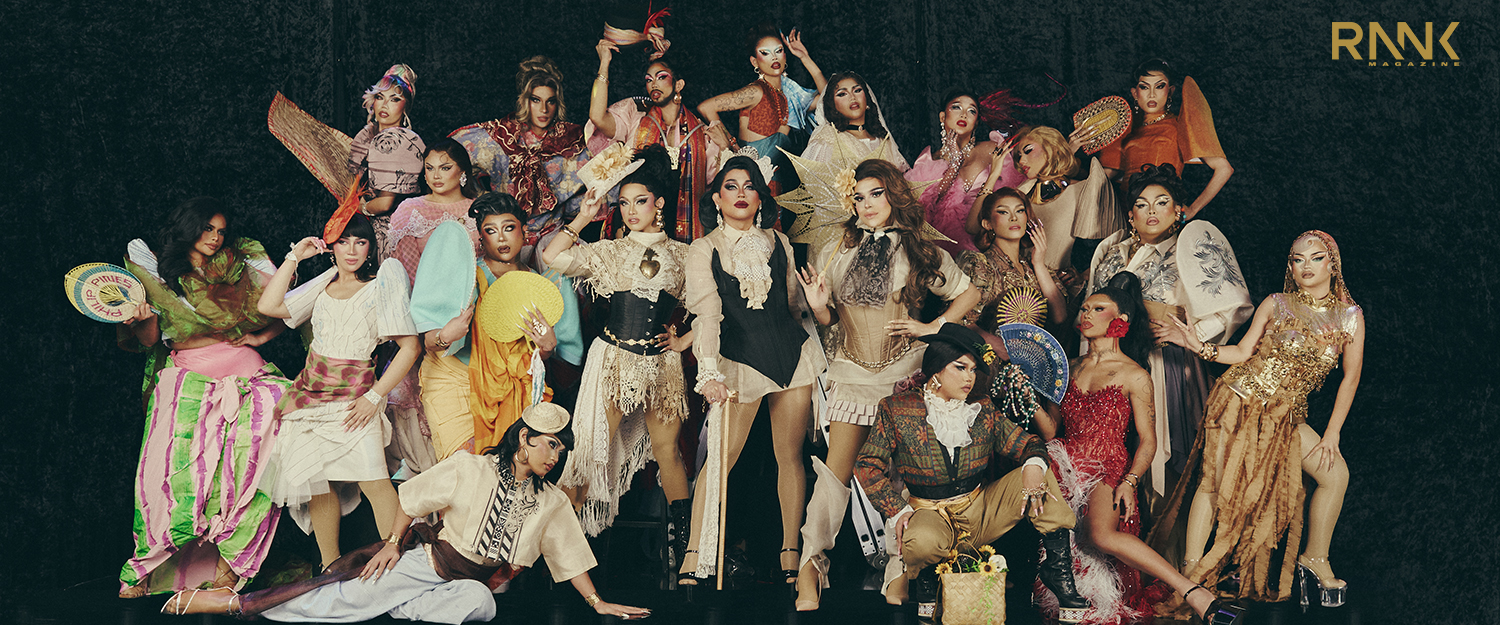
The House of Nicole, House of DeLuxe, and House of Ding, joined by the new slate of performers at Rampa. Photographed by Chris Cantos.
The queens don’t just talk about the future, they’re preparing it. In five years, they know the baby queens of today will be the drag mothers of tomorrow. That’s the beauty of Rampa: it’s not just a platform for performance, but a blueprint for lasting legacy.
And with each performance, each moment of mothering, each lesson passed down in a backstage whisper, the Divine Divas are ensuring that the next generation won’t have to start from scratch.
To call Rampa a bar is to miss the point. It’s a declaration. A shelter. A safe space. A love letter written in rhinestones. And in the hands of the Divine Divas, it is proof that when queens build for others, the future doesn’t just arrive, it arrives in full beat, spotlight on, heels ready, and heart open.
Produced by Rank Magazine in collaboration with the Divine Divas and the House of Ding
Executive Creative Director and Sittings editor: Leo Balante
Photography by Chris Cantos
Art Director and Executive Producer: Kevin Gonzales
Project manager: Krystal Urriza
Divine Divas Fashion stylist: Jose Ferdinand of Glorious Dias
Fashion Direction and styling for Divine Daughters and Rampa Reynas: Jason Mago and Angelo Vasallo
Videography and editing: Emil Santiago
Shoot and Multimedia Associates: Bhernn Saenz and Chris Almendral
Queen’s care: Paolo Aricheta, Micaela Gatchalian, Darius Tobiano and Jennilyn Caligang
Special Thanks to: RAMPA Club, Wellness Whispers by Dani Barretto, D’Intervention, Hany Capistrano, Adrian Sevilla, Myra Miranda of Martha Cleans, Lucky CJ by Janet Javier, Jonah Tamayo, Lia Kristine Absalon.
With thanks to food provided by: Tapadera PH
